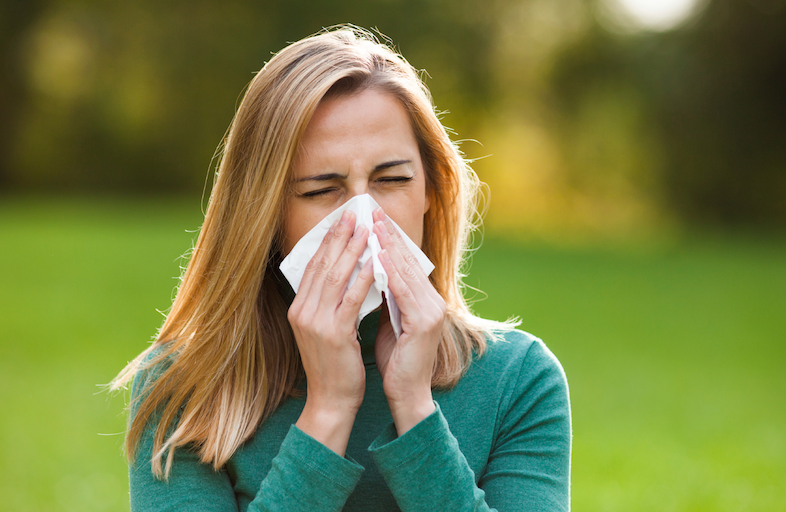Some of the most common ways people combat their spring allergy symptoms may not be providing relief at all. Here are five common mistakes and advice on how to better control the sneezing and wheezing that comes with pollen season:
Treating symptoms without knowing their specific cause. More than two-thirds of spring allergy sufferers actually have year-round allergies! It is important to see a physician that is an expert in the diagnosis and treatment of allergies and asthma. A board-certified allergist will perform tests that will determine what your specific triggers are and find the right treatment to control your symptoms and improve your quality of life.
Treating after the symptoms start. Don't wait until you're experiencing symptoms to take allergy medication that has worked for you in the past, begin taking it just before the season starts. Make sure you follow the pollen count or sign up to receive a daily email with the count and the contributing pollens. But know that as soon as the weather begins to warm, pollens and molds will be released into the air and your symptoms won’t be far behind.
Spending money on over-the-counter with no relief. Eight in ten allergy or asthma suffers said self-medication falls short of being “very effective’ in treating their symptoms. Often people try numerous combinations of drugstore meds prior to seeking the advice of an allergy specialist. If over-the-counter medications aren’t working, speak with your allergist about treatment alternatives such as nasal sprays or allergy immunotherapy (shots, drops, tablets) which can provide relief from your allergies and save you money in the long run.
Not avoiding triggers. It is important to find the right treatment plan, but it is also important to minimize your exposure to your allergic triggers. If you have a pollen allergy, click here for tips on avoiding triggers and minimizing symptoms.
Eating produce that can trigger spring allergy symptoms. One in three seasonal allergy sufferers experience an itchy mouth, lips, or throat, and may sniffle and sneeze after eating certain raw foods or fresh fruit. This condition is called oral allergy syndrome. The immune system of people who are allergic to pollen can sense a similarity between the proteins of pollen and those in foods. If you are allergic to tree pollen, eating apples, cherries, pears, apricots, kiwis, oranges, plums, almonds, hazelnuts, and walnuts may cause a reaction. Cooking or peeling these foods may help, but be sure to talk with your allergist if you are experiencing any reactions to foods.

